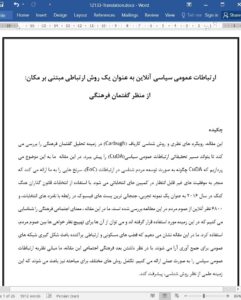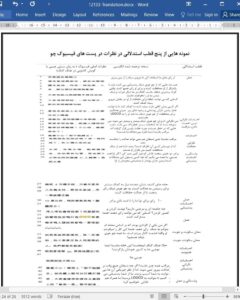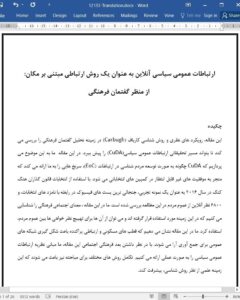Abstract
This study introduces the theoretical and methodological approach of Carbaugh’s (2007) cultural discourse analysis (CuDA) to advance the research agenda on political public relations. I discuss how CuDA, as an extension of the ethnography of communication (EoC), provides clues to unexpected success in an election campaigning. Using the 2016 Hong Kong lawmakers’ election as an empirical example, the most discussed Facebook posts of an election candidate, and 6800 online comments from the public are studied. I identify the socio-cultural meanings that are used and can be used to engage public-to-public election canvassing. This study shows that the prominent discursive hubs of dwelling and relation organize networked publics to canvass. Responding to the socio-cultural turn of the literature, this study grounds the theorization of political public relations in practice. The evaluation of different approaches to discourse also moves the field forward methodologically.
1. Introduction
Recent years have witnessed the limitations of public opinion polls in predicting election outcomes. Examples include the unpredicted support for Donald Trump in the United States presidential election, the unexpected ‘Brexit’ vote in the United Kingdom, and the surprising victory of independent candidate Eddie Hoi-dick Chu in the Hong Kong Legislative Council election. Although the pre-election polls provide a predictive trend on the election outcomes, the polling can be influenced by reliance on self-reported data, the potential bias of using landline numbers, the lack of appropriate sampling frames, and a spiral silence effect (Kenett, Pfeffermann, & Steinberg, 2018). There is a gap in the existing polling research on public behavioral data that reflects culturally-grounded discourse in an election campaign. In this study, the term “public” refers to social media users who discuss the issues relating to an election candidate’s election campaign. “Culturally grounded discourse” refers to naturally occurring discussion among social media users situated in a socio-cultural context.
7.1. Advancing political public relations theory and method using CuDA
This study introduced a cultural discourse perspective into the field of political public relations. The empirical analysis demonstrates the links between the place-based relational discourse of the local public and the election candidate. This study sheds light on how CuDA can be employed to capture the grounded social interaction during the marketing of a political candidate and an election campaign. Moreover, it expands the notion that stakeholders’ engagement in political public relations activities is not dependent only on the relationship between the candidate and the stakeholders (Painter, 2015), but also on political public relations and society (Edwards, 2016; Edwards and Hodges, 2011)










